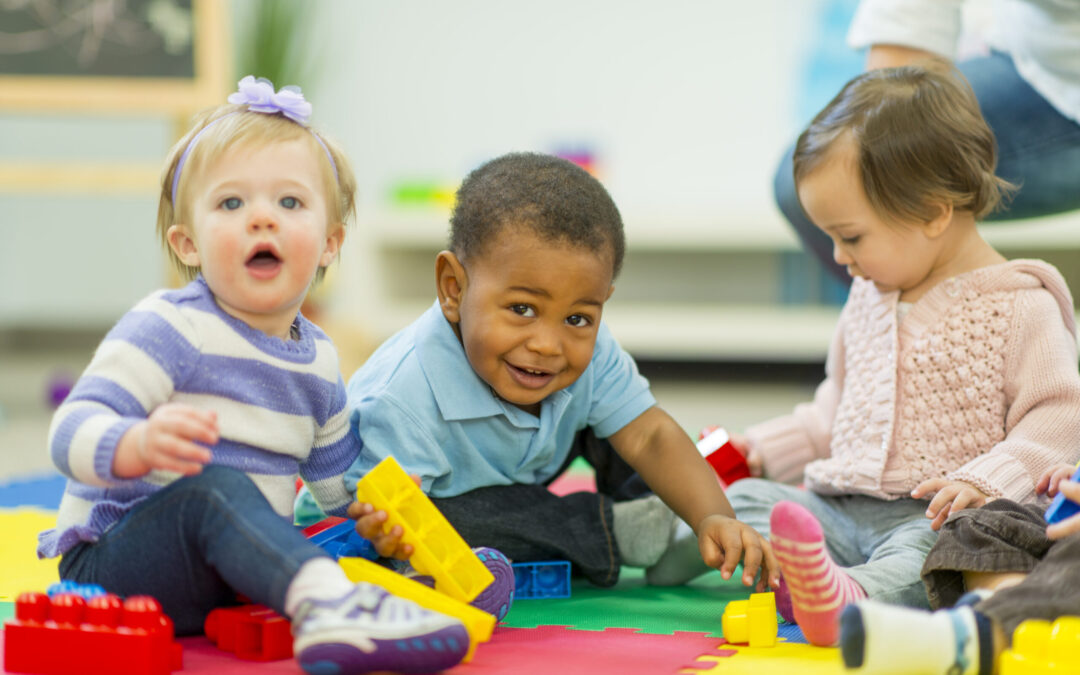
Playdates, storybook reading, and interactive games might simply seem like a fun way to interact with your child. However, activities like this also play a large role in developing their social and emotional competencies.
Learn the various ways you, as a parent, can support and encourage this development for your toddler.
Early-stage Social and Emotional Learning (SEL) is fundamental to a child’s development. It helps them understand how to interact with others, and gives them the ability to recognize and regulate their own emotions.
But while an SEL-specific curriculum contributes significantly to nurturing a child’s development, informal play and learning share an equally important role. Here are some ways that grown-ups can foster a child’s social and emotional development through informal means.
Lead by Example
Young children and infants often learn by observing and imitating the adults around them. Therefore, adults should seek to create an environment which encourages emotional expression. One way of doing this is by hanging pictures of children with various facial expressions and consistently asking the child to identify how they are feeling and why, using the pictures as aids. By focusing on this process early, parents can help to maximize the child’s intellectual, behavioral and emotional development at all stages in their life.
Because children observe their parents’ actions, it is important to demonstrate clear, consistent, and appropriate behaviors and language. Doing so teaches children how they should be responding to the emotions of others. When children respond, adults should seek to validate the child’s feelings and help him/her explore them, rather than dismissing his/her emotions. This models an appropriate and constructive response which the child can then mimic in peer-to-peer situations.
Naming Emotions and Setting Guidelines
When new emotions like worry, disgust, excitement, and surprise arise, parents should name and explain the characteristics of those emotions to the child to make their feelings less overwhelming. These situations might happen, for example, while reading a book, in a social interaction or during a show or movie. If the child is observing new emotions (rather than experiencing them personally), narrate the situation and prompt them to think of a time when they felt the same way, and how they overcame it to build empathy.
Parents can also encourage their children to recognize emotions better by establishing guidelines which will teach them appropriate and inappropriate responses. For example: “It is alright to feel angry, but we cannot hit our friends.” Once these expectations are set, it is important that both the parent and the child maintain them, to ensure consistency.
The Importance of Free Play
While children learn many behaviors from watching adult interaction, they also learn a great deal from interacting with their peers. Free, cooperative play with children of all ages exposes them to a variety of emotions, and teaches them about socially acceptable responses. It also teaches them prosocial behaviors like taking turns, using their imagination and sharing. When you see a child comforting their peer or engaging in other prosocial behaviors, be sure to acknowledge those actions with a simple “You did it! You helped your friend clean up. That was helpful.”
Once a child can identify the emotions of others, it will be important to build on that growth by encouraging them to apply what they have learned. For example, when a peer is upset, encourage the child to think of ways to help them feel better: “Could you share your toy with them?” or “Could you give them a hug?” etc. Through this practice, the child can develop important traits like empathy, kindness and altruism.
Measuring a Child’s Social and Emotional Intelligence
While it is harder to recognize SEL milestones in comparison to physical growth targets, here is a list of traits to look for to get you started:
- How many different emotions does my child express?
- Do they verbalize what those emotions are?
- Can they explain what caused specific emotions?
- Does my child go to grown-ups for comfort or do they self-soothe?
- Can my child regulate their emotions during a tantrum or outburst?
- Is my child able to recognize and respond to emotional expressions of other children and/or adults?
Every person a child interacts with on a day-to-day basis can impact their SEL. That means that the babysitters you employ, the child care professionals you hire and the teachers with whom your child engages can all help them grow and develop in a variety of ways. By actively working with your child’s influencers, you can better help shape their understanding of emotions and prosocial behaviors.
For more information reach out to Celebree School today at 410-515-8750.

